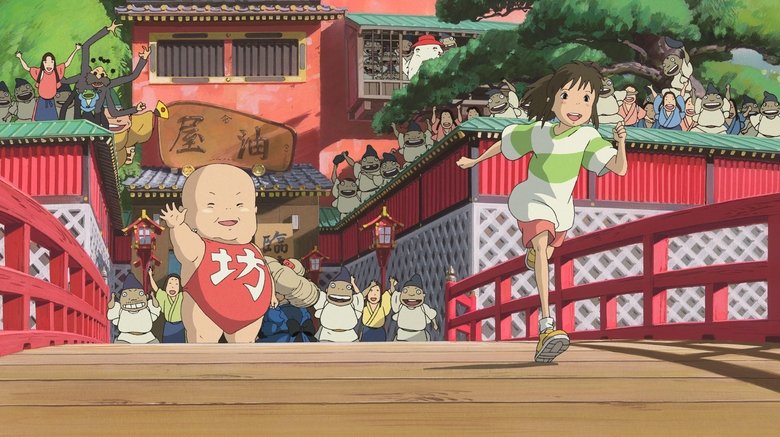Essential Japanese cinema: Must-watch films
Explore the rich and diverse world of Japanese cinema with this curated list of essential films. From timeless classics to modern masterpieces, these movies offer a window into Japan's unique cultural landscape.

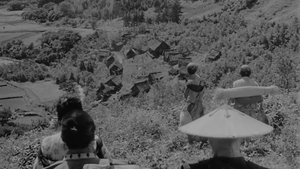

Japanese cinema boasts a legacy stretching back over a century, producing films that have profoundly influenced global filmmaking. It's a landscape of incredible diversity, ranging from the epic sweep of samurai dramas to the intricate beauty of animated features and the stark realism of modern social commentaries.
Directors like Akira Kurosawa are legendary, not just in Japan but worldwide, for their groundbreaking work in historical epics and character studies, which have been remade and referenced countless times in Western cinema. His films often delve into themes of honor, duty, and the human condition against backdrops of feudal Japan.
The world of anime has also become synonymous with Japanese film, with studios like Ghibli crafting visually stunning and emotionally resonant stories that appeal to all ages, exploring environmentalism, fantasy, and the magic of everyday life. But Japanese cinema isn't just about historical or animated tales; it encompasses gripping thrillers, profound dramas that explore family dynamics and societal pressures, and experimental works that push the boundaries of the medium.
These films often offer a unique perspective, blending deep philosophical questions with striking visual aesthetics and compelling narratives that stay with you long after the credits roll. Delving into Japanese cinema is an enriching experience, revealing a depth and artistry that continues to captivate audiences globally.
13. Kagemusha (1980)
Another epic from the master, Akira Kurosawa's Kagemusha is a grand historical drama about a thief who is trained to impersonate a powerful warlord after the warlord's death. The title means "shadow warrior," and the film beautifully explores themes of identity, illusion, and the nature of leadership. The film is visually spectacular, with stunning costumes, sets, and battle sequences. Did you know that Francis Ford Coppola and George Lucas were instrumental in helping secure international funding for the film after Kurosawa struggled to find support in Japan? It's a sweeping and majestic film that showcases Kurosawa's command of the historical epic genre. A must-see for fans of samurai films and grand cinematic storytelling.

12. Harakiri (1962)
Masaki Kobayashi's Harakiri is a powerful and visually stunning jidaigeki (period drama) that is far more than just a samurai film. Set in the Edo period, it tells the story of a ronin who requests to commit seppuku at the courtyard of a feudal lord, but his true intentions are far more complex. The film is a searing critique of the samurai code and the hypocrisy of power. It's known for its deliberate pacing, striking cinematography, and intense emotional impact. Harakiri is a masterpiece of Japanese cinema, exploring themes of honor, betrayal, and social injustice. It's a film that will challenge your perceptions and leave a lasting impression with its stark beauty and powerful message.

11. The Wind Rises (2013)
Hayao Miyazaki's final feature film before his initial retirement, The Wind Rises, is a fictionalized biographical drama about Jiro Horikoshi, the engineer who designed the Zero fighter plane used in World War II. Unlike many of his previous films, this one is grounded in historical reality, offering a more mature and reflective look at passion, ambition, and the unintended consequences of creation. The animation is, as always with Ghibli, exquisite, particularly the dream sequences and depictions of flight. It's a film that delves into the complexities of pursuing one's dreams in a turbulent world. While it might not have the fantastical elements of some of his other works, it's a deeply personal and beautifully crafted film that serves as a fitting capstone to a legendary career.

10. Departures (2008)
Departures is a tender and life-affirming film about a man who finds unexpected purpose in the traditional Japanese ritual of encoffinment. After his orchestra disbands, a cellist returns to his hometown and takes a job preparing the deceased for burial. The film beautifully explores themes of death, grief, and the importance of human connection. It's a surprisingly moving and often humorous film that offers a unique insight into Japanese culture and customs surrounding death. Departures won the Academy Award for Best Foreign Language Film, a well-deserved honor for its sensitive portrayal of a rarely depicted profession. It's a quiet film that speaks volumes about life and finding beauty in unexpected places.
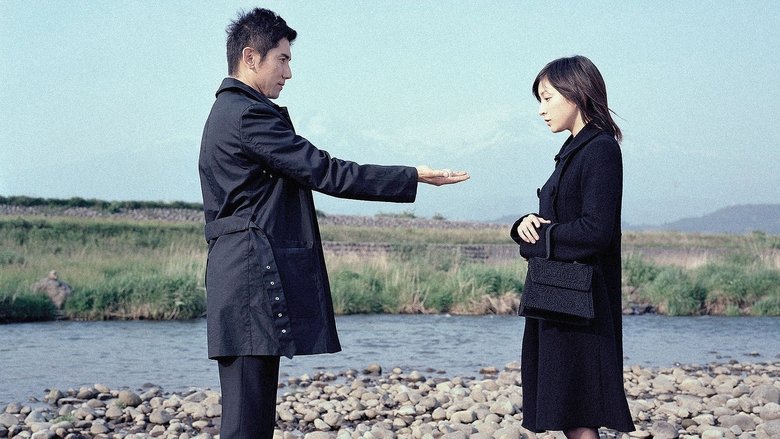
9. Grave of the Fireflies (1988)
Prepare for an emotionally devastating yet incredibly beautiful film. Isao Takahata's Grave of the Fireflies is a poignant and heartbreaking story of two siblings struggling to survive in the final months of World War II. It's a powerful depiction of the human cost of war, seen through the eyes of innocent children. The animation is stunningly rendered, contrasting the beauty of the artwork with the grim reality of the story. This film is known for being incredibly sad, and it definitely earns that reputation, but it's also a testament to the resilience of the human spirit and the enduring bond between siblings. It's a film that will stay with you long after you've seen it, a stark reminder of the tragedies of war.

8. Battle Royale (2000)
Battle Royale is a controversial and influential dystopian thriller that sparked intense debate upon its release. The premise is simple yet brutal: a group of high school students is sent to a deserted island and forced to fight each other to the death until only one survivor remains. Despite its violent premise, the film offers a sharp critique of societal pressures and the education system. It's a tense and thrilling ride that doesn't shy away from uncomfortable themes. Did you know that the film was a massive box office success in Japan but faced significant censorship and even calls for its ban in other countries? It's a visceral and thought-provoking film that has left a lasting impact on the survival genre.
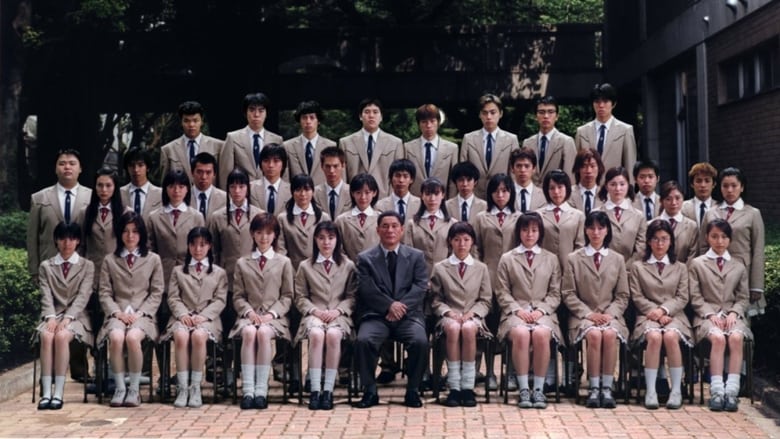
7. Tokyo Story (1953)
Yasujirō Ozu's Tokyo Story is a profoundly moving and quietly powerful film about family, aging, and the changing times in post-war Japan. It follows an elderly couple who travel to Tokyo to visit their children, only to find them too busy with their own lives. Ozu's signature style, characterized by his low camera angles and static shots, creates an intimate and contemplative atmosphere. The film is renowned for its subtle emotional depth and realistic portrayal of generational differences. While it may not have the dramatic flair of some other films on this list, its simple yet profound story resonates deeply. It's a film that reminds us of the importance of family and the bittersweet nature of life.

6. Rashomon (1950)
Akira Kurosawa's Rashomon is a groundbreaking film that revolutionized cinematic storytelling. It presents a single event, the murder of a samurai, from the perspectives of multiple witnesses, each offering a different, often contradictory, account. This innovative structure forces the audience to question the nature of truth and perception. The film's visual style is striking, utilizing natural light and dramatic camera angles. Rashomon was instrumental in introducing Japanese cinema to a global audience, winning the Golden Lion at the Venice Film Festival and an honorary Academy Award. It's a philosophical and suspenseful film that will leave you pondering long after the credits roll. A true classic that continues to inspire filmmakers.
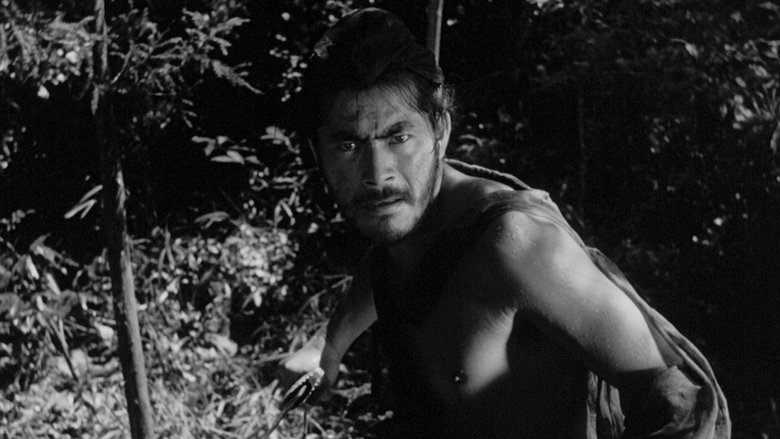
5. Princess Mononoke (1997)
Princess Mononoke is a visually stunning and thematically complex masterpiece from Hayao Miyazaki. This epic historical fantasy film explores the conflict between industrial civilization and the natural world, centered on a young man who gets caught in the middle of a war between forest spirits and humans. The animation is absolutely gorgeous, with incredibly detailed backgrounds and fluid character movement. The film tackles mature themes and doesn't shy away from depicting the harsh realities of conflict. Did you know that Studio Ghibli initially wanted to release the film unedited in the US, famously sending a katana to Miramax with the message "No cuts"? It's a powerful and thought-provoking film that remains incredibly relevant today, with a strong environmental message and unforgettable characters like the fierce Princess Mononoke herself.
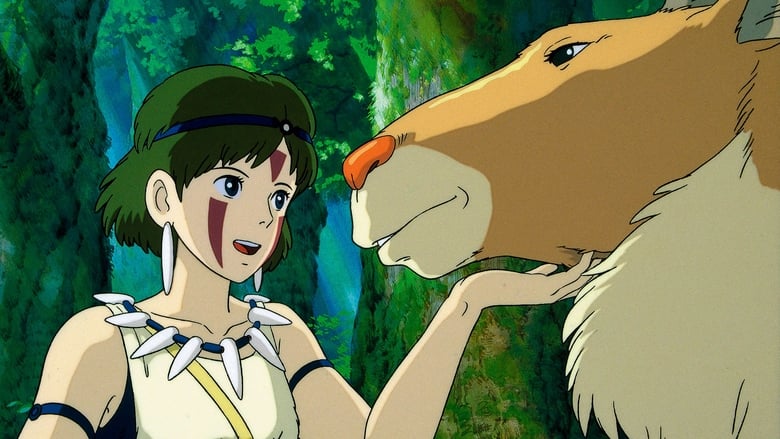
4. Seven Samurai (1954)
Regarded as one of the greatest films ever made, Akira Kurosawa's Seven Samurai is a sprawling, epic tale of honor, duty, and the courage of ordinary people. Set in 16th-century Japan, it follows a group of masterless samurai hired by villagers to protect them from bandits. The film's influence is immense, practically inventing the 'assembling the team' trope seen in countless movies since. Kurosawa's masterful direction is evident in every frame, from the dynamic battle sequences to the quiet moments of character development. Interestingly, the film was shot in the Japanese countryside and took a year to complete, facing numerous production challenges. It's a timeless story with complex characters and a powerful message about standing up for what's right. Clocking in at over three hours, it's an investment of time that is richly rewarded.

3. Your Name. (2016)
Get ready to have your heartstrings pulled and your mind bent! Your Name. is a modern anime phenomenon that beautifully blends romance, fantasy, and body-swapping shenanigans. The story of a high school girl in the countryside and a high school boy in Tokyo who inexplicably swap bodies is utterly captivating. What truly sets this film apart is its emotional depth and stunning animation. The depiction of light and landscapes is particularly breathtaking. Director Makoto Shinkai is known for his visually lush films, and Your Name. is arguably his most accomplished work. It's a film that will make you laugh, cry, and think about the invisible threads that connect us. Plus, the soundtrack by Radwimps is absolutely perfect, enhancing the film's emotional impact. A truly special cinematic experience.

2. Akira (1988)
Akira is a landmark achievement in animation, a cyberpunk epic that blew minds upon its release and continues to influence pop culture to this day. Set in a dystopian Neo-Tokyo, the film follows a teenage biker gang leader caught up in a secret government project involving psychic powers. The animation here is simply jaw-dropping, pushing the boundaries of what was thought possible at the time. The level of detail in the cityscapes and action sequences is staggering. Fun fact: the film's production was notoriously expensive for its time, using over 160,000 animation cels and 2,000 colors, many of which were newly created specifically for the movie! It's a visually stunning, thematically rich film that delves into societal decay, technological anxiety, and the destructive nature of power. A true cult classic that demands to be seen.

1. Spirited Away (2001)
Prepare to be transported to a world of fantastical spirits and bathhouses! Hayao Miyazaki's Spirited Away is an absolute masterpiece of animation, weaving a captivating tale of a young girl named Chihiro who finds herself trapped in a magical realm. The sheer imagination on display is breathtaking, from the quirky characters to the stunningly detailed environments. Did you know that the film was inspired by Miyazaki's friend's ten-year-old daughter, reflecting on what she would be like as a hero? It’s a coming-of-age story that resonates deeply, exploring themes of identity, courage, and the importance of hard work. Seriously, the animation is so fluid and expressive, it feels like every frame is a work of art. A must-watch for anyone who loves beautiful storytelling and unparalleled visual artistry. It's no wonder it won the Academy Award for Best Animated Feature – the first and only hand-drawn, non-English language film to do so!
